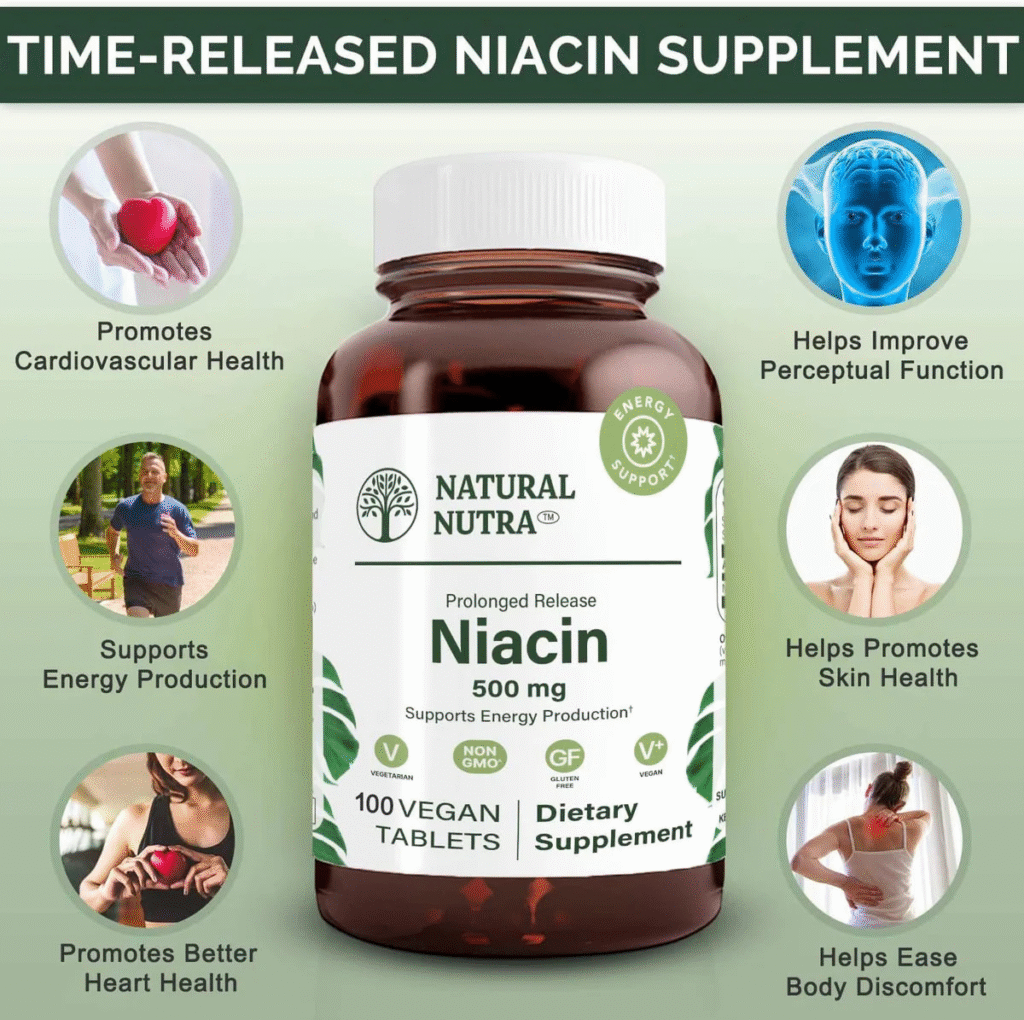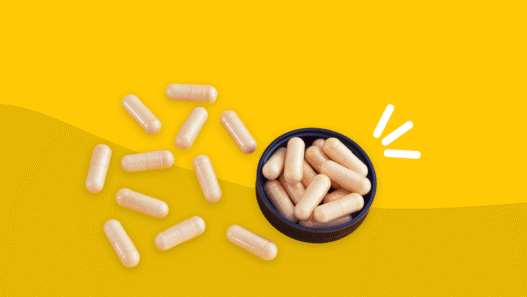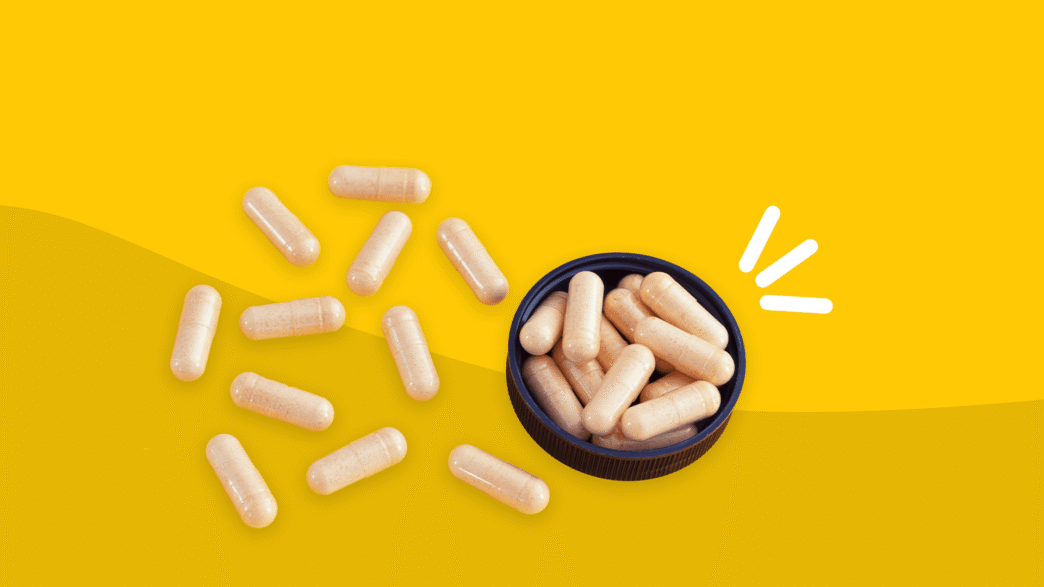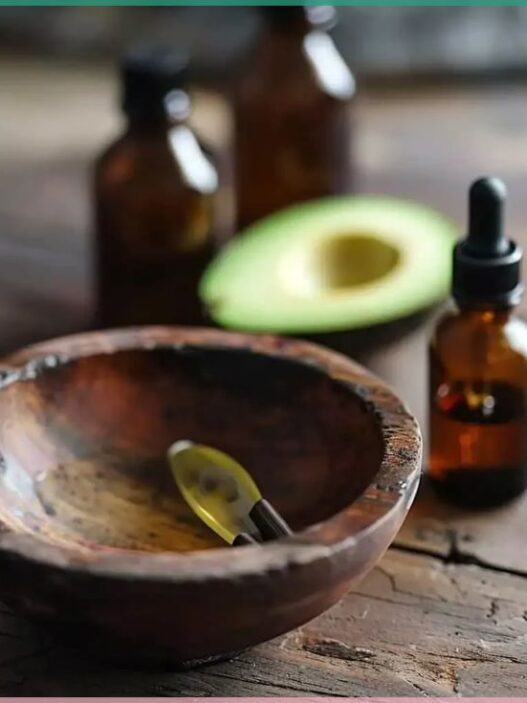One of the eight B vitamins that helps turn the calories you consume into useful energy is niacin, often known as vitamin B-3. Niacin can aid in circulation and is also involved in the synthesis stress hormones. What is the safest dose of niacin and is it safe to take 500mg of niacin a day?
Niacin deficiency is extremely rare in modern nations since, according to the National Institutes of Health, you may get all the niacin you require through diet.
Under medical supervision, high dosages of niacin may be helpful in treating high cholesterol. But remember, that they include a number of major dangers. Before incorporating niacin supplements into your daily diet, speak with your physician.
Lowering cholesterol is treated with high dosages of niacin. However, taking too many supplements containing niacin can have negative health implications. So, let’s delve in detail of is it safe to take 500mg of niacin a day because the answer is just not a Yes or No.
Dietary Sources And Recommendations for Niacin
Eggs, lean meats, nuts, poultry, dairy products, fortified breads and cereals, legumes, and fish are among the foods that contain niacin. Adults should consume 14 to 16 milligrams of niacin daily. This is more than 30 times less than a 500 milligram dose.
Consuming foods high in niacin, such as chicken (7.3–11.7 mg/serving), tuna (8.6–11.3 mg/serving), fortified breakfast cereal (20–27 mg/serving), salmon (8.5 mg/serving), and lentils (2.1 mg/serving), will help you easily meet this daily requirement.
High Doses (500mg) Are Used To Reduce Cholesterol
Higher dosages of niacin, usually 500 mg or more, have been used to treat elevated cholesterol in addition to niacin deficiency. Doses this high are usually marketed as prescription drugs, according to MedlinePlus.
Dietary supplements, which usually come in dosages of 250 milligrams or less, are not suitable for treating high cholesterol since very high doses are needed.

High dosages of niacin in combination with a prescription cholesterol-lowering medication were examined in one study that was published in the journal Archives of Internal Medicine.
Beginning with a 500 mg daily dose and gradually increasing to 2,500 mg daily, this study discovered that niacin, when taken with one kind of statin medication, could improve almost four types of cholesterol that are frequently related to atherosclerosis.
High Doses Of Niacin Side Effects
High dietary intake of water-soluble vitamins, such as niacin, usually has no negative effects. However, too high niacin dosages from prescription or over-the-counter vitamins can cause major health issues.
Serious skin flushing, itching, easy bruising, lightheadedness, nausea, indigestion, diarrhea, fast heartbeat, low blood pressure, and excessive fatigue might result from using 500 mg of niacin pills daily.
Additionally, niacin might exacerbate gallbladder illness, thyroid issues, and allergies. People with or without diabetes may experience elevated blood sugar levels as a result of niacin’s interference with glucose regulation.
Liver damage, liver disease, and liver failure can result from taking extremely high doses of niacin, such as 3,000 mg per day, or from long-term use of extended-release niacin.
Imbalanced B-Complex and Niacin Flush
When taking bigger amounts of niacin, one of the most common adverse effects is a “niacin flush.” Redness, itching, and tingling in the areas of the neck, face, arms, and upper chest are the results of this mild side effect. The National Institutes of Health said that doses of 30 to 50 mg of niacin can start niacin flushing.
A possible imbalance in the body’s levels of other B vitamins is one less evident consequence of taking large amounts of niacin. Unbalances in other B vitamins might result from taking excessive amounts of any one of the B vitamins.
Therefore, if you choose to use supplements, it is recommended to take a B-complex vitamin, which contains all of the B vitamins.
Liver Damage Risk
There are still certain risks associated with taking amounts as high as 500 milligrams of niacin, even though it is water soluble and can be eliminated by the body when taken in excess like all other B vitamins. These dosages may result in liver damage, elevated blood sugar, gastric ulcers, and skin rashes, among other side effects.
Avoiding niacin pills is especially crucial for people who already have kidney disease, liver disease, or stomach ulcers. Furthermore, niacin should only be used under a doctor’s supervision by people who have diabetes or gallbladder disease.
How Many Mg Of Niacin Is Safe?
Your age and gender determine how much niacin you should consume each day. In niacin equivalents (NE), niacin is expressed in milligrams (mg).
Both the niacin from food consumption and the niacin the liver produces from tryptophan-containing meals are included in the recommended daily allowance. One NE is equivalent to 60 mg of tryptophan and one milligram of niacin.

The Food and Nutrition Board has proposed the following dietary reference intakes for various age groups:
Young Children: 2 mg from birth to six months
- Ages 7–12: 4 mg NE
- 6 mg NE for 1–3 years
- Ages 4–8: 8 mg NE
Children and teenagers aged 9 to 13: 12 mg NE
- Boys aged 14-18: 16 mg NE
- Girls aged 14-18: 14 mg NE
Adults
- Men aged 19 and up: 16 mg NE
- Women aged 19 and up: 14 mg NE
- Women who are pregnant: 18 mg NE
- Women who are nursing: 17 mg NE
Conclusion
Niacin, commonly known as vitamin B3, nicotinamide, or nicotinic acid, is an important nutrient that the body needs. So, is it safe to take 500mg of niacin a day? Yes, only to lower cholesterol.
Safe amounts of niacin can lower cholesterol levels and improve brain health. Among other health benefits, dietary niacin (vitamin B3) is essential for maintaining general well-being. On the other hand, excessive niacin use may result in major issues.

















